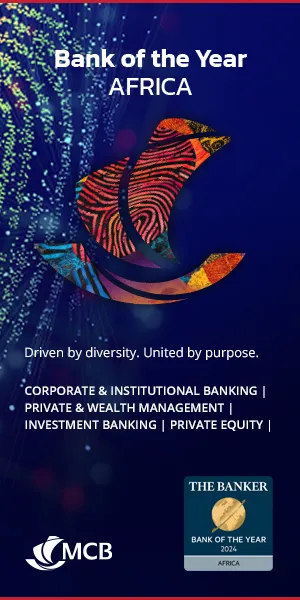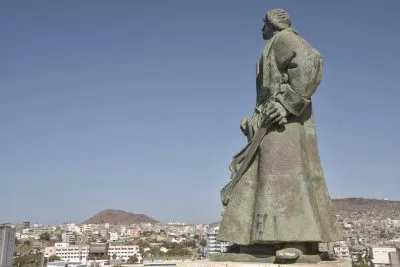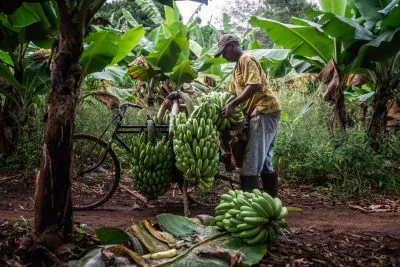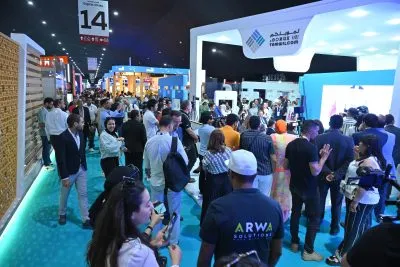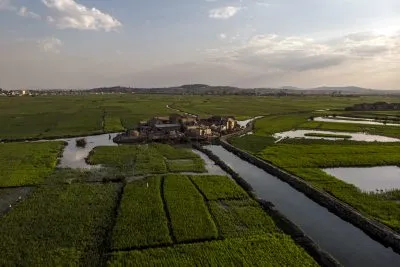This article was produced with the support of MediaCity Mauritius
African Business: By way of an introduction, could you tell us about the MediaCity Mauritius project?
Najib Gouiaa, CEO, MediaCity Mauritius: We are developing a global, integrated hub for the media and the creative industries in Africa. Our aim is to support the emergence of regional businesses in these sectors, by leveraging our location in Mauritius as a gateway to Francophone and Anglophone Africa. We want to attract major industry players including international media corporations and creative entrepreneurs.
What is the scope of MediaCity Mauritius?

Our goal is to bring together African and international companies from across the sector and to be recognised as a leading global media city serving as a creative industry hub, along with the likes of Dubai, Seoul, and Salford. Our ambitions align with the increased globalisation of this industry, as key players constantly expand their global footprint to be present in new markets. By joining the existing network of media cities around the world, MediaCity Mauritius is poised to be the gateway for Africa to realise its soaring and long-awaited creative and commercial potential.
Why did you choose Mauritius?
Mauritius is perfectly placed to bring together companies looking for a secure and connected environment to establish themselves and prosper in Africa. It distinguishes itself from many African countries by having fostered a conducive environment for creativity and investment. This competitive advantage stems from its political and institutional stability, a well-developed urban infrastructure, well-established business incentives, strong connectivity, a modern administration, and a high standard of bilingual education.
Importantly, it has an independent judiciary, as well as legislation tailored to fostering the growth of our target industries. Above all, it is highly multicultural, with African, Asian, and European influences; such global openness is a critical factor in the development of a knowledge, information, and entertainment-based economy.
For all these reasons, we believe Mauritius has the potential to become the epicentre of Africa’s media and creative industries.
Are international industry players present in most media cities around the world looking to establish themselves on the continent?
There undoubtedly is a growing interest in African markets. According to the African Development Bank, despite the difficult context of a global pandemic and external economic shocks, Africa is expected to recover from its worst recession in half a century to achieve 3.4% growth in 2021.
At the same time, with the establishment of the world’s largest free trade area (AfCFTA) giving access to a market of 1.3bn people, the continent is creating a whole new development path. Therefore, now more than ever, many well-known companies in Europe and Asia’s media cities are looking to develop a presence in Africa to benefit from the untapped talent, untold stories, and creative potential that the continent has to offer.
However, to date and despite the increasing demand, only a few African countries provide a comprehensive and viable hosting platform for the industry. Hence the relevance and timeliness of this project: MediaCity Mauritius is designed to be the African destination, with an offering for international companies looking to enter the continent’s marketplace that is as robust and comprehensive as that of other global media cities.
How will MediaCity Mauritius position itself on the market and what does it bring to the global circle of media cities?
We have established a strategy that combines major technological, academic and sustainability players into our development, and will attract the industry’s most prestigious anchor clients. For instance, integrating our project within the Beau Plan Smart City is a carefully considered urban planning choice, to ensure sustainability and efficiency are at the core of our infrastructure, supported by the expertise and vision of our partner Nova Terra.
Our partnership with Broadcasting Center Europe (BCE) vouches for our capacity to provide the same high level of service and technical infrastructure that global standards dictate and media professionals expect.
The establishment of a media campus within the media city will turn MediaCity Mauritius into a breeding ground for future talent from across the region, and provide our clients with a pool of local talent to tap into. Finally, the support of the Mauritian government’s Economic Development Board, on top of our reputable business partners, facilitates a strong market entry, gives us credibility, and demonstrates our dedication to making MediaCity Mauritius a success.

What is the added value of developing your project within a Smart City?
The ability to provide convenient access to an attractive and functional urban setting is a definite incentive when it comes to attracting world-class professionals to live and work in a media city. In fact, smart cities, with their integrated development plan, prove to be the ideal hosts for media cities as their respective ecosystems complement each other perfectly. An additional area of convergence is their high propensity for innovation in a wide range of sectors: the economy, education and training, connectivity, quality of life, and environmental performance and sustainability.
We chose the Beau Plan Smart City because it allows us to implement our sustainability principles into more than just an infrastructure with offices and studios, by offering the Work-Live-Play-Learn-Create environment that Beau Plan brings to life.
What is the purpose of your partnership with Broadcasting Center Europe?
Our partnership with BCE, a European leader in media services, speaks volumes about the quality and reliability of our technological offer. MediaCity Mauritius will host a broadcasting centre dedicated to Africa and, thanks to BCE’s expertise, will offer its clients the most up-to-date technological facilities in terms of broadcast equipment, hardware, and software.
The media city’s first phase will see the development of three television studios, post-production rooms, as well as production and transmission facilities with cutting-edge technology. In addition, with the recent installation of the METISS cable connecting Mauritius to South Africa, we will offer ultra-fast broadband connectivity enabling the transfer of enormous amounts of high-definition material and on-site storage capacity for large amounts of data that can be accessed remotely worldwide.
Tell us more about the Media Campus that MediaCity Mauritius also proposes to host.
The on-site African Media Campus is the strategic centerpiece of our development plan, as the availability of local and qualified human resource will be critical. As such, the academic offer is inextricably linked to the technological offer in our project. This is a key issue for any industry, but especially for the media and creative industries where companies, including those which will be housed in MediaCity Mauritius, expect a high level of sophistication and expertise to produce world-class digital content.
On top of that, the campus’ mission is to contribute to the advancement of higher media education in the region. It is set to become a nerve centre for the next generation of creative talent by housing a renowned university and training schools for the technical professions covering image, sound and graphic arts, digital industry, as well as numerous production and management professions.
Why did you choose the ‘African’ label for your media campus?
With MediaCity Mauritius poised to be Africa’s fully integrated hub for the industry, we have naturally dedicated this campus to the continent in the hope that it will serve as a breeding ground for its growing talent. In terms of media studies, Africa is still lagging behind the rest of the world, and we believe that by bringing together industry and education professionals, we can help bridge this skill gap.
Mauritius is already a popular choice for African students, but the Mauritian government’s strategy is to increase the country’s capacity to host international students. Our campus will provide African students with the opportunity to join this academic hub to acquire the skills, experience, and qualifications required to access career opportunities not only in the media, but in all creative and digital sectors.
How do you see this media industry expanding in Africa over the next few years?
Today, Africa is at the centre of critical, wide-ranging processes facilitating media globalisation. Africa’s digital content market has expanded dramatically over the last few years, with the number of people subscribing to video on demand services expected to increase to 12.96m by 2025.
There is also renewed interest in the continent from major international technology companies. Twitter, for example, recently established its African headquarters in Ghana, while Facebook has opened a new office in Nigeria as part of its ongoing investment in the continent.
Such market development could be critical to the post-pandemic economic recovery. However, for Africa to fully benefit from this upswing, it must generate its own digital content and move away from relying solely on imports. MediaCity Mauritius will be an incentive in this respect, providing the gateway for the continent to generate its own content and tell its own stories.

 Sign in with Google
Sign in with Google 
